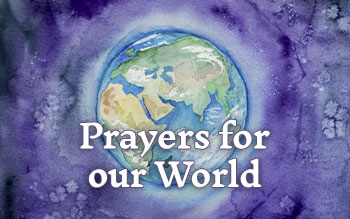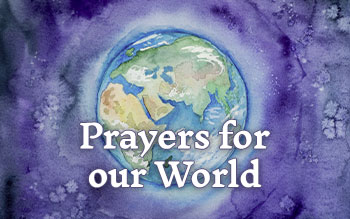Displaying items by tag: China
China: earthquakes and fracking
On 17 June buildings collapsed, trapping people underneath in a 6.0 magnitude earthquake in the south-west Chinese province of Sichuan. Thirteen people have died so far, and 4,000+ people have been relocated from damaged and destroyed homes. Landslides damaged major roads. Over 500 firefighters were deployed to the area, and rescue teams are bringing in 5,000 tents, 10,000 folding cots, and other supplies. See Earlier this year a thousand residents gathered outside government buildings in Sichuan province, blaming recent earthquakes on shale gas exploration in the area. The county subsequently suspended fracking operations. The Seismological Society of America attributed a 5.7 quake in December 2018 and a 5.3 quake in January 2019 to fracking activities in the region. Quake-prone Sichuan has extensive fracking operations, accounting for about a third of China's total shale gas production. Chinese geologists said that over-development of hydropower resources has undermined the seismic stability of Sichuan. Some blame the 2008 catastrophic earthquake on large-scale damming.
China, Hong Kong: Catholics urge restraint
A proposed bill allowing mainland China to pursue government critics and criminals in Hong Kong and extradite them to China drew protest marches by thousands on 9-11 June, causing a debate on 12 June to be cancelled. The Catholic diocese of Hong Kong joined the social welfare sector and the largest teachers’ union in voicing concerns about the bill. Two thousand counsellors, carers, therapists, and religious groups went on strike. A strike organiser said, ‘We are forced to take a stand on this moral question of right and wrong.’ Several other Christian denominations in Hong Kong also voiced concerns. Police fired rubber bullets and tear gas at protesters, who threw bricks and projectiles back. People are worried that the civil rights and freedoms guaranteed to Hong Kong under the ‘one country two systems’ arrangement will be eroded under the new law. China often uses accusations of non-political crimes to prosecute its critics.
China: The New Normal for Christianity
A few years ago, Rob Gifford, author of China Road: A Journey into the Future of a Rising Power, spoke at a ChinaSource conference in Hong Kong. He talked about the economic and social challenges that were likely to force China into drastic restructuring, noting that demographics alone would require it to move from being a labor-intensive, manufacturing-based economy to something else. ‘One thing is certain’, Gifford said, ‘the next 30 years in China cannot look like the last 30 years.’
More recently, this sentiment was echoed by China watcher Bill Bishop, who wrote in November in the Axios[2] newsletter that ‘we have to accept that China under General Secretary Xi Jinping is materially different from the China we knew under Hu Jintao and Jiang Zemin.’
One way that China is ‘materially different’ under Xi Jinping is a significantly tighter political environment. After three decades of loosening Communist Party control and expanding freedoms, Xi is systematically trying to reassert Party control over all sectors of society. This is behind so many of the reports we have seen of late of crackdowns and growing harassment/persecution of believers. However, the crackdowns are part of something much broader and it is a misinterpretation to assume that they are simply targeted at religion in general, or Christianity in particular.
This new political environment is impacting both local believers in China and foreign workers whohave been serving the church in China.
End of the era of openness
The past few decades have seen an increased openness for churches and believers.[3] The urban house church movement came into its own. Unlike the rural house church movement that had grown up during the era of intense persecution and of necessity had been ‘underground’, these urban house churches are often public (complete with websites) and have adopted a less confrontational stance towards the government. The goal has been to show the authorities that they are not a threat.
Even though religious regulations were not changed, enforcement was relaxed, leading to an expanded gray zone that allowed for the growth of Christian publishing, media, and education. Local officials had leeway in overseeing religious affairs in their jurisdictions, and some even cultivated relationships with church leaders. This contributed to a more relaxed environment as Christians could offer assurances of not being a threat. As long as local churches and believers did not cause trouble, they were largely left alone.
For the foreign Christian community serving in China, the past few decades have been marked by increasing openness as well. While still not being allowed to engage officially in religious work, foreign Christians could live and work in China on a variety of legitimate visa platforms. These included teaching, studying, operating registered commercial enterprises, and establishing locally-registered NGOs. Some were working independently, while others were quietly part of sending organizations. So long as their visa and residence permission papers were in order, they were operating their businesses according to local laws and regulations and were considered to be providing legitimate services to the community, their presence was tolerated.
The ‘New Normal’
The new environment, or ‘New Normal’[4] as it is sometimes referred to, is making things more difficult for local believers. In 2018, the government issued a new set of religious regulations that make it significantly more difficult for unregistered churches (house churches) to function. Penalties can be levied against landlords who rent to unregistered groups, and local officials are under pressure to be stricter in their enforcement of these regulations. As a result, a few large, high-profile house churches have been closed and their leaders detained. Other larger house churches have made plans to divide (or have divided) into smaller churches should the need arise. In some ways this can be seen as Communist Party-led church multiplication.
Registered churches (‘Three-self’ churches) are also feeling the pressure, with more political rhetoric and directives to ‘Sinicize’.[5] Many registered church leaders now have to spend more time managing their relationships with government officials, leaving less time for shepherding the flock.
Read the full report here: https://www.lausanne.org/content/lga/2019-05/the-new-normal-for-christianity-in-china?utm_source=Lausanne+Movement+List&utm_campaign=0f41363ced-Lausanne_Global_Analysis+-May2018&utm_medium=email&utm_term=0_602c1cb67d-0f41363ced-91691477
Pray: that the doors will re-open to Christian workers and mission agencies.
Pray: for those being persecuted and marginalised because of their faith.
Pray: for protection of those 'at risk'
Pakistan: Christian bride trafficking
Muqadas was 16 when her parents married her off to a Chinese man looking for a bride. A few months later, Muqadas is back home, pregnant, and seeking a divorce from an abusive husband. Hundreds of poor Christian Pakistani girls have been trafficked to China in a bride market that has swiftly grown since last year. Brokers aggressively seek girls for Chinese men, sometimes cruising outside churches to look for potential brides. They are being helped by Christian clerics paid to target impoverished parents in their congregation with promises of wealth in exchange for their daughters. Parents receive several thousand dollars and are told that their new sons-in-law are wealthy Christian converts - but this is not true. The Chinese government and its embassy in Pakistan are accused of turning a blind eye to the practice by issuing visas and documents without question.
USA: national emergency over IT threats
President Trump has declared a national emergency to protect US computer networks from ‘foreign adversaries’. He has barred US companies from using foreign telecoms believed to pose national security risks. The order does not name any company, but is believed to target Huawei, who said that restricting its business in the US would only hurt American consumers and companies. The move is likely to worsen tensions between the US and China, which escalated this week with tariff hikes in a trade war. Huawei may not need the US market, but it certainly needs the key components that it gets from the US. On 14 May, Huawei’s chairman said that Huawei was ‘willing to sign no-spy agreements with governments’, as concerns over the security of its products used in mobile networks continues to grow. See also article 6 in the UK section.
Government, Huawei, UK telecoms
The National Security Council discuss intelligence coordination and defence strategies. But information from one meeting was published in the Daily Telegraph. Defence secretary Gavin Williamson was suspected of, and sacked for, allegedly leaking discussions around giving Chinese telecoms firm Huawei contracts to build UK infrastructure to support future networks. These networks would allow people to control their home (lights, washing machines, etc), allow driverless cars to operate, control infrastructure, water and air-quality monitoring systems, traffic lights, and display live departures at bus stops and train stations. Other governments around the world, concerned over security, have blocked Huawei technology from their next-generation networks. British telecom giants BT and EE are removing equipment made by Huawei from core parts of their 3G and 4G operations, and plan to exclude it from bidding on future 5G contracts. Huawei said it would never hand information to the Chinese government, but there is scepticism over whether it would have a choice. Meanwhile Mr Williamson, one of the few ministers with good relations with the DUP, has been sacked despite his strong denial of any involvement in the leak. See
China: paying people who report ‘illegal’ churches
China has upped its persecution of Christians, with Communist party officials in Guangzhou offering a reward of up to 10,000 Chinese Yuan (approximately £1,162) to those who can provide information about underground churches, secret Christians, religious leaders, and others involved in ‘illegal’ religious activity. Smaller rewards are offered for information about churches and other religious meeting places built or used without official permission. The regulation is called ‘Incentives to Motivate the Masses to Report on Illegal Religious Activities’. The persecution watchdog China Aid says that the new regulations will significantly increase the persecution of Christians in this officially atheist country. Inciting people to report on others with monetary incentives only appeared during the Cultural Revolution, when children would report their parents, a wife would report her husband, and colleagues would report one another.
China: closing Christian churches in Easter crackdown
UK Foreign Secretary Jeremy Hunt has said he is 'appalled' at the ongoing persecution of Christians.
One of the countries clamping down is China. Churches continue to be closed, and Christians have been arrested because of their faith.
That is because the country is officially an atheist state, with freedom of religion guaranteed in the constitution. Sky's Tom Cheshire explains.
Watch the SKYNEWS video on Youtube:
https://www.youtube.com/watch?v=OZE4y4PSjCw
Pray for our persecuted brothers and sisters in China.
China: arrests, journalist detained, pastor’s mother beaten
Journalist and church deacon of Early Rain Covenant Church, Zhang Guoqing, was missing for several days before it was discovered he was being held in police custody for ‘provoking trouble’. He had published a story of how the pastor’s mother, Chen Yaxue, had been beaten up by a policeman, and how one officer had grabbed her hair and kicked her. Also, eight Christian families from the same church were evicted from their homes and two fired from their jobs, after police pressured landlords and employers. Twelve Christians are currently being held in criminal detention, and one is missing. Pray for them all, asking the LORD to be a shield of protection around them (Psalm 3:3). Pray for the Lord’s provision for those who have lost their homes and jobs. Ask also for mental and physical healing for Chen Yaxue, after the cruel police assault.
First EU-Arab summit
European and Arab leaders recently held their first summit in a bid to bolster cooperation and protect their traditional diplomatic, economic and security interests while China and Russia move to fill the vacuum left by the United States. Donald Tusk, the president of the European Council, who organises summits for EU countries, acknowledged that ‘there are differences between us’, but said neighbours had much at stake. ‘We need to cooperate and not leave it to global powers far from our region’, he told leaders from forty countries. He did not name those powers, but an EU source confirmed he meant China and Russia. A suspected Russian spy working in the Swedish high-tech industry was arrested in Stockholm on 26 February. He was ‘suspected of being recruited as a Russian agent working under diplomatic cover’. See









